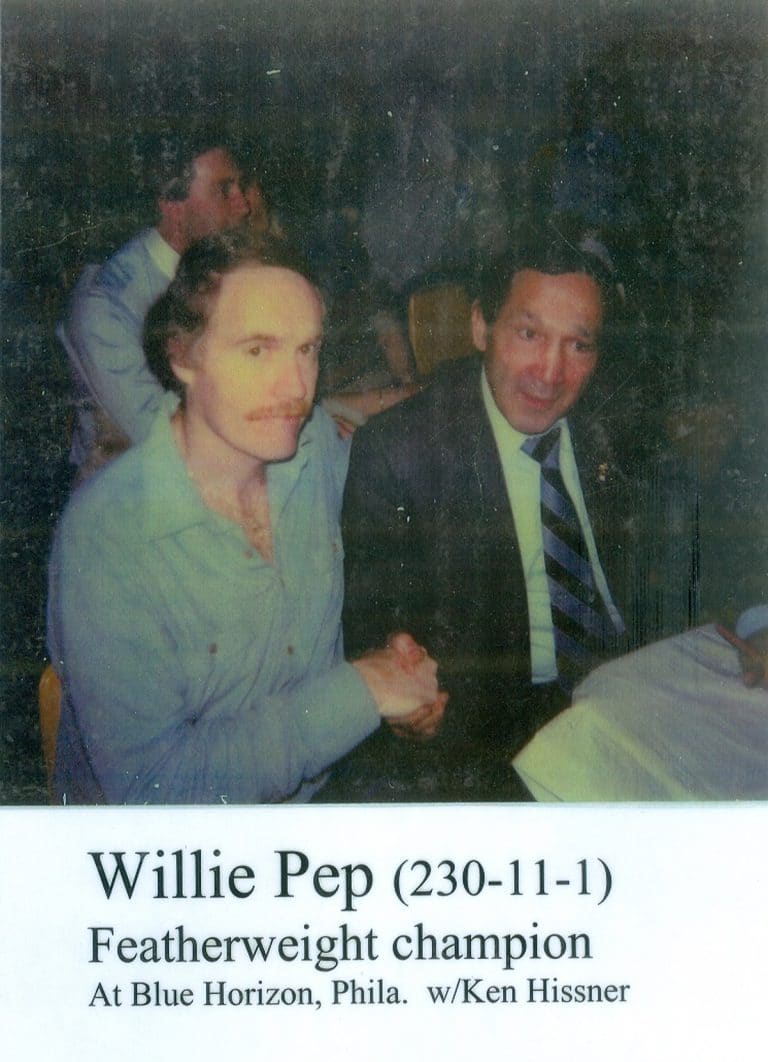By Ken Hissner: When you think of the lower weights in boxing, some of the names that pop up are world Flyweight champion Jimmy “The Mighty Atom” Wilde of Wales in the UK!
Wilde was 131-3-1 with 98 stoppages from 1911 through 1923. He was 94-0-1 before losing for the first time in January of 1915 to Scotland’s Tancy Lee, 17-1, for the vacant European title. In June 1916, Wilde won the rematch stopping Lee in eleven rounds.
Wilde’s victories included over “Young” Joe Symonds, 43-7-5, who would go on to win 97 fights. In Wilde’s next battle, he defeated Sid Smith 66-10-4 for the British title. Both were just before his first loss to Lee. In December of 1916, it was recognized for the world title when he defeated Italy’s Young Zulu Kid, 28-21-10, being the first world Flyweight champion.
In 1919 Wilde defeated Memphis Pal Moore, 87-17-18, and in the US over Frankie Mason, 109-15-39. He was inducted into the IBHOF in their first year in 1990.
During modern times were Japan’s World Flyweight and Bantamweight champion Fighting Harada, 55-7 with 22 stoppages. In winning the Bantamweight title, he defeated one of the all-time greats in Brazil’s Eder Jofre, 47-0-3, in May 1965. After that, one of his major wins was over Colombia’s Bernardo Caraballo, 43-1-2.
Jofre, 72-2-4 with 50 stoppages, also won the WBC Featherweight title in May of 1973, defeating Cuba’s Jose “Pocket Cassius Clay” Legra, 128-9-4. After his second loss to Harada, Jofre won his last twenty-five fights retiring in 1976.
Philadelphia’s WBA World Bantamweight champion “Joltin” Jeff Chandler, 33-2-2 with 18 stoppages, won the WBA World title stopping Puerto Rico’s Julian Solis, 21-0 in April 1980.
In April 1991, Chandler traveled to Tokyo, Japan, drawing with Eijiro Murata, 18-0-2. Then in a rematch, he stopped Solis again in July. Then in the rematch in Atlantic City, New Jersey, in December, Chandler stopped Murata in the thirteenth round.
Chandler defeated Philly rival Johnny “Dancing Machine” Carter, 23-1, in six rounds in Philly after the second Murata fight. In March of 1983, he defeated Gaby Canizales, 24-1; in July of 1983, in a non-title battle, he lost to Oscar Muniz, 35-3-3, by split decision in Atlantic City.
Chandler, in his next fight, would travel to Japan and, in a rematch, stop Murata. Then in a rematch with Muniz, in December of 1983, he stopped him in seven rounds. Next, in his tenth defense, it would be his final bout ending his career losing to Richie Sandoval, 22-0, being stopped in the final round in Atlantic City. Afterward, he underwent surgery to remove a traumatic cataract from his left eye, which led to his retirement. He was inducted into the IBHOF in 2000. His promoter J Russell Peltz would be inducted in 2004 to the IBHOF.

This leads us up to World Featherweight champion Willie “Will o’ the Wisp” Pep. He was considered by some to be the best pound-for-pound but certainly the best of the “little men” in boxing! Oddly in the amateurs, he lost to who was considered the best of the best in “Sugar” Ray Robinson.
Pep, in November of 1942, won the NYSAC World Featherweight title defeating Chalky Wright, 143-33-17, at Madison Square Garden. Pep was 53-0 when he won the title. In March of 1943, Pep lost for the first time in a non-title fight to Sammy Angott, 69-17-5, at Madison Square Garden in New York. Pep was 62-0 going into the battle.
In June 1943, Pep defended his title, defeating Sal “Pride of East Boston” Bartolo, 45-16-6, and again in June of 1946 by knockout. In July of 1944, he defeated Willie Joyce, 52-9-7, and ten days later defeated the former Bantamweight champion Manuel Ortiz, 58-11-2. He followed this up by defeating Lulu Costantino, 88-11-6.
In August 1947, Pep knocked out Jock Leslie, 58-9-4, in a world title defense. In December, he stopped Lefty La Chance, 131-53-16. In February of 1948, he stopped Cuban Humberto Sierra, 40-7-3, in Miami.
In October 1948, Pep lost his title to Sandy Saddler, 86-6-2, by stoppage at Madison Square Garden. He was 134-1-1 at the time. In February 1949, Pep regained the title in a rematch defeating Saddler in Ring Magazine’s Fight of the Year at the Garden.
In September of 1949, in a title defense, Pep stopped Eddie Compo, 57-1-3, in Waterbury, CT. In March 1950, he defeated France’s Ray Famechon, 59-5, in another defense.
In December 1950, in their third bout, Pep again lost to Saddler, 115-7-2, due to a separated shoulder at the end of the seventh round. He would return to the ring, winning eight straight before getting a rematch with Saddler in September of 1951, losing by stoppage in nine rounds though ahead on two of the three scorecards at the time.
Pep would retire in 1959 but return to the ring in March 1965. In his second fight back, I saw him defeat Jackie Lennon, 8-10-3, at the Philadelphia Arena. He put on quite a show of boxing ability at the age of 42. He would win nine straight on this return to the ring before losing in his final bout to Calvin Woodland, 8-4, over six rounds in March of 1966. Years later, I would get to meet him in the audience at the Blue Horizon in Philly.
Pep once told Middleweight champion Rocky Graziano “you couldn’t hit me with a fist full of stones!” He was inducted into the first year of the IBHOF in 1990 with a record of 229-11-1, with 65 stoppages.
